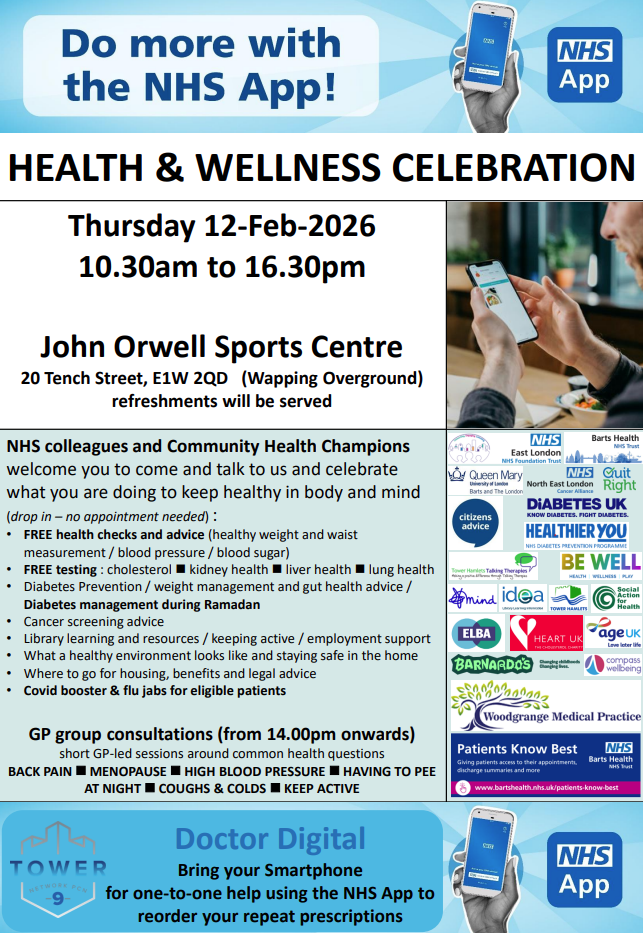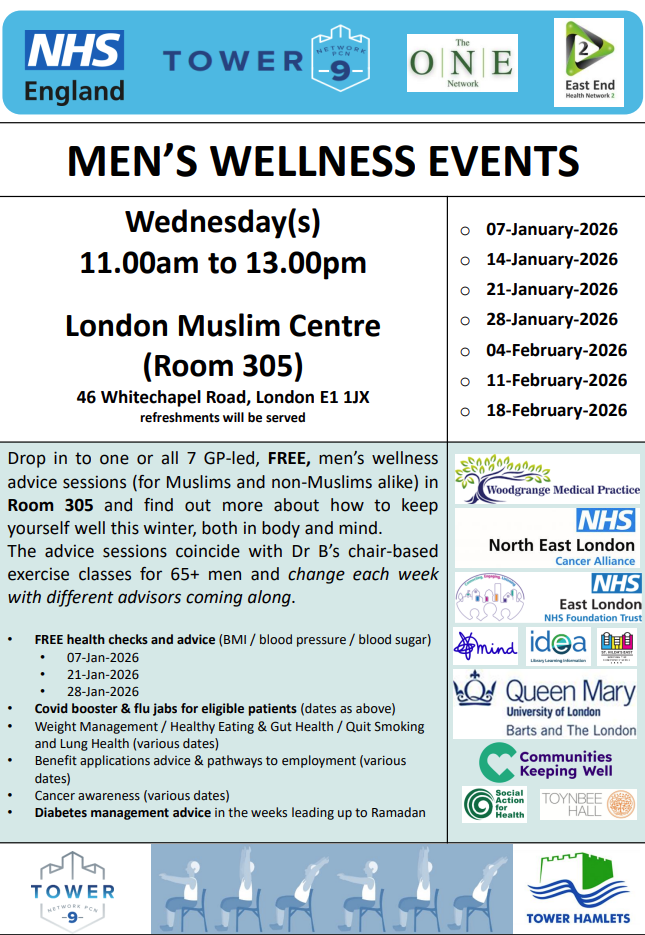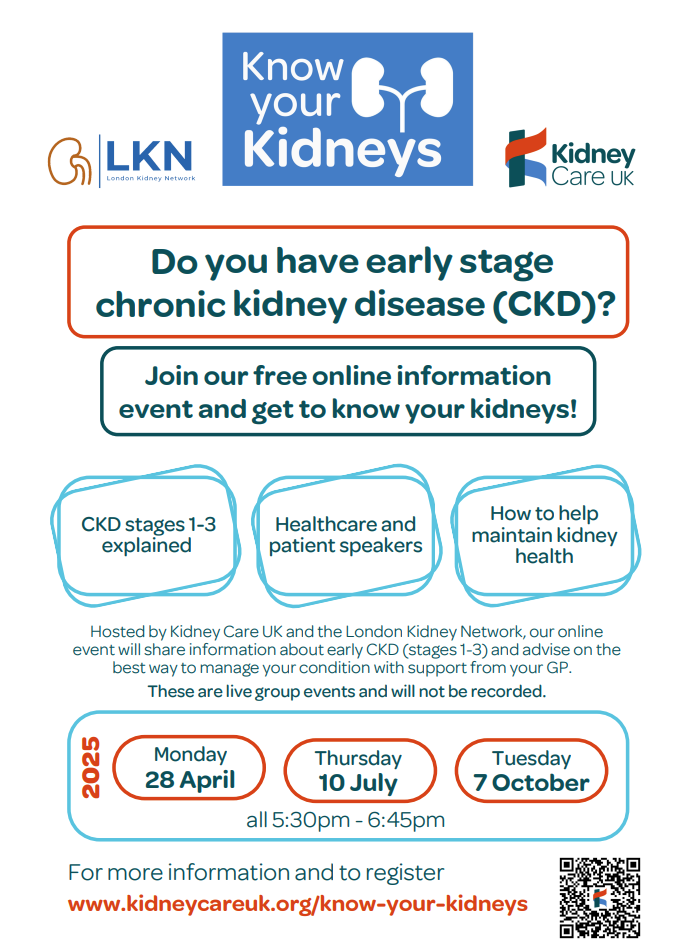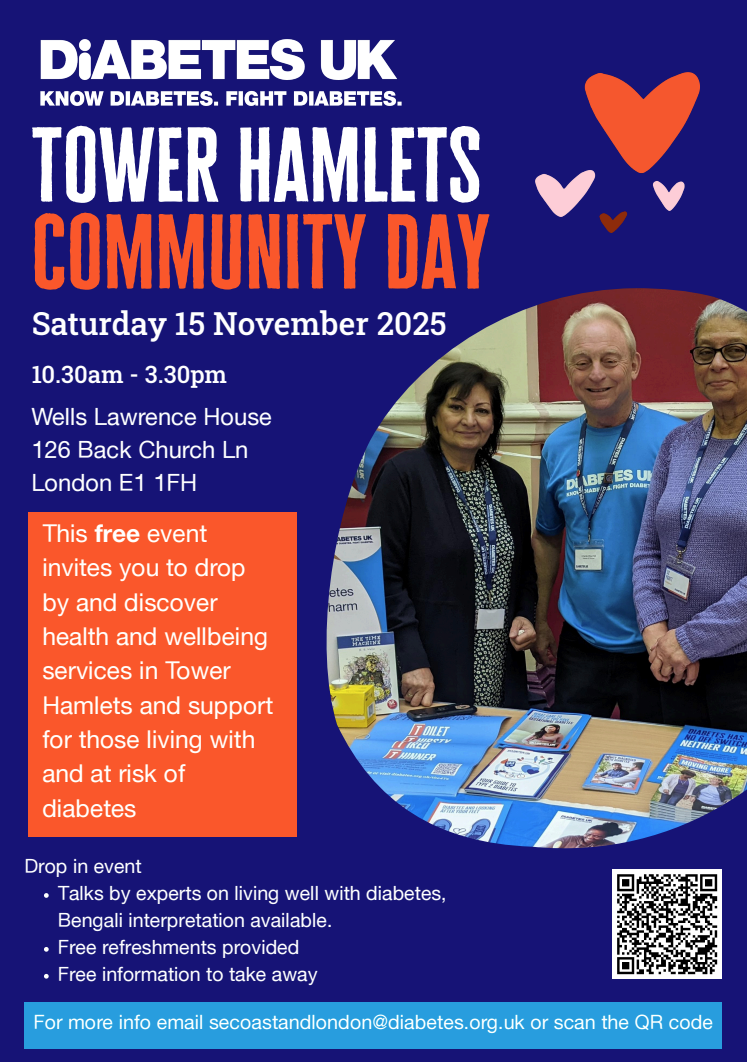
Uncategorised
London Muslim Centre Pre Ramadan 2026

✍️ Pilot of AI Scribes at Jubilee Street Practice
We are testing a new digital assistant called an AI scribe. This tool helps clinicians by writing up notes during your appointment, so they can spend more time listening and less time typing.
🔹 What is an AI scribe?
-
It is a secure tool that listens during your appointment (face-to-face or telephone).
-
It creates a draft summary of the consultation for the clinician.
-
This means the clinician can focus more on the conversation with you.
🔹 How will it work in practice?
-
At the start of the appointment – your clinician will explain the scribe and ask if you are happy for it to be used. You can say yes or no.
-
During the appointment – the scribe creates a draft transcription.
-
At the end – your clinician will review the full transcription, make changes if needed, and then save it securely into your medical record.
-
Afterwards – you will be able to see the final approved version through your NHS App, as usual.
🔹 Why are we testing this?
-
To give clinicians more time to listen and support patients.
-
To make medical notes clearer, faster, and more accurate.
-
To trial new NHS-approved technology safely before wider use.
🔹 Governance and privacy
-
Approved for use across the NHS.
-
Checked against strict NHS rules for safety, privacy, and quality.
-
We have signed Data Processing Agreements (DPAs) with the provider.
-
Your information is stored securely in the same NHS record system as always.
❓ Frequently Asked Questions (FAQ)
Do I have to agree to this?
No. It is your choice. If you say no, your clinician will type notes as usual.
What if I want to discuss something sensitive?
You can say no to using the scribe at any point, or ask the clinician to pause it.
Does it save my recording?
No. Only the written notes are saved in your medical record – never the audio.
Can you share my recording with me?
No. We cannot share the recording because it is not kept. You can view the final approved notes through your NHS App as usual.
Is my data saved to the cloud?
No. Once processed, the recording is deleted.
Do you share my data/details with third parties?
No. Your data is not shared with anyone outside your healthcare team.
Will this affect my care?
No. Whether or not you agree, your care will be the same.
Who can see my notes?
Only your healthcare team, in the same way as now.
🔹 Next steps
-
We are running a 2-week pilot with a small number of clinicians.
-
We will review feedback from both patients and staff.
-
We will only continue if the tool is safe, useful, and protects your privacy.
✅ Your feedback matters. Please let us know your thoughts during and after the pilot.
Chronic Kidney Disease Patient Education

Tower Hamlets Community Day

Celebrating Juned Ali: A Proud Moment at the House of Parliament


We are delighted to share a special moment featuring Juned Ali, one of our valued Patient Coordinators at the practice. Recently, Juned was invited to speak at the Portcullis House of Parliament to a distinguished group of business leaders and Project SEARCH senior representatives.
During this important event, Juned shared milestones from his career journey, reflecting on his experiences with both Project SEARCH and our own organisation, Jubilee Street Practice. His talk powerfully highlighted the value of supported internships and the real, lasting impact they can have on individual lives and career development.
Juned’s delivery was nothing short of impeccable. His warm, sincere reflections—sprinkled with humour and honesty—captivated the entire room. It was a truly magnificent moment that reminded all in attendance of the importance of inclusion, opportunity, and growth within the workplace.
We are incredibly proud of Juned for representing Jubilee Street Practice with such poise and passion. His story is not only a testament to his personal journey, but also to the success of partnership programmes that support individuals into meaningful employment.
Well done, Juned—your voice continues to inspire.
Letter to confirm address (for banks/building societies)
Fit to fly
Fit to return to work note
National Pertussis Vaccination and Immunisation 2024/25
Due to the number of cases of pertussis increasing and the recent infant deaths, we are focusing on the pertussis vaccination programme for pregnant women.
Pregnant women are eligible for their pertussis vaccination from 16 weeks of pregnancy. Receiving vaccination between 20 and 32 weeks of pregnancy provides optimal protection. Vaccination may still be given after 32 weeks of pregnancy until delivery; however it may not offer as high level of passive protection to the baby.
As a practice, we are carrying out this pertussis marketing campaign with a focus on preventing illness, sharing information with pregnant women around the benefits of getting vaccinated, using all relevant opportunities to signpost to pertussis vaccination, and offering pertussis vaccination opportunistically to pregnant women registered with us.